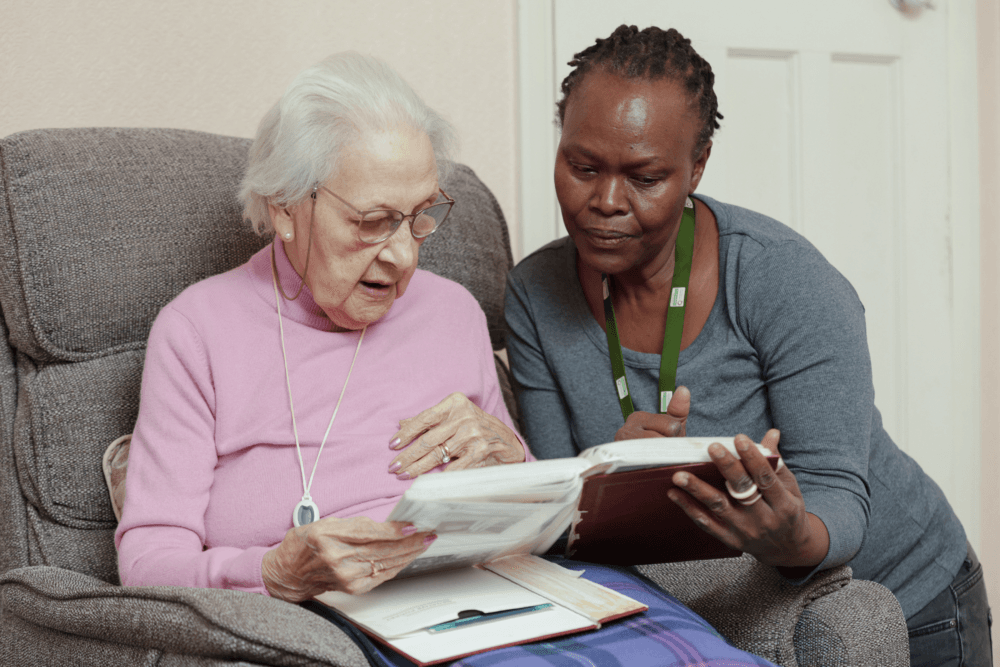Home Care vs Care Homes: Why Staying at Home Makes Sense

Why Home Care Is a Smart Choice
At Home Instead Wimbledon and Kingston, we let you remain in familiar surroundings, receive support when you need it, and maintain independence and connection to your community.
- You pay only for what you need
Rather than a “one-size-fits-all” full-time package, home care allows you to tailor support: whether that’s a few hours a week or daily assistance.
- Independence is preserved
Staying at home lets people remain in their own environment, surrounded by memories, routines, and comfort. Research shows that older people who live at home often retain better ability to perform daily activities and maintain verbal communication.
In fact, a UK study found that for some vulnerable older people, receiving care at home can lead to better outcomes than hospital stays, with fewer risks of confusion or dependence, and reduced pressure on acute services.
- Less trauma and disruption
Moving into a care home is often stressful and emotionally challenging. A qualitative study on transitions into care homes described how people struggle to adjust, losing the sense of “home” and autonomy.
In contrast, home care allows life to continue with fewer upheavals — routines, familiar settings, and personal choice remain.
- Social connection and dignity
Remaining in one’s own home helps maintain social ties, involvement in local life, and a sense of control. These pieces are critical for wellbeing, dignity, and emotional health.

How to Find Out About Costs & Support in Merton & Kingston
Understanding how payments and funding work can be confusing. Here’s a step-by-step guide for residents in Merton and Kingston boroughs:
- Request a needs assessment from your local council
If you haven’t already, contact Merton Council Adult Social Care or Kingston Council and ask for a needs assessment. This determines what support you require.
- Undertake a financial assessment (means test)
If the council determines you’re eligible for care support, they will ask you to complete a financial assessment. This evaluates your income, savings, and capital to decide how much you can pay toward your care.
- In Kingston, for example, if your capital is over £23,250, you may be required to fully self-fund your care until it drops below this threshold.
- If your assets fall between certain levels (e.g. £14,250 and £23,250), partial help may be available, with calculations to adjust what you pay.
- Explore additional funding sources
- Council contributions: If your assessment shows limited assets, the council may subsidize part of your home care.
- NHS / health funding: Depending on your care needs, you might qualify for Funded Nursing Care (FNC) or Continuing Healthcare (CHC) funding, especially if your medical needs are complex.
- Self-funding: Many people pay privately using savings, pensions, or investments.
- Housing & equity: Some choose to downsize or use equity in property to fund care.
- Independent financial advice: A financial adviser with experience in long-term care options (equity release, draw-down, trusts) can help you plan more sustainably.

Key Benefits of Staying at Home with Home Care
- Flexibility: Adjust services up or down as your needs change.
- Consistency: You continue your life in your own home — with familiar surroundings, possessions, routines, and community.
- Companionship & local connection: You can still go out, engage socially, and benefit from the companionship service that encourages outings, visits, and active living.
- Reduced stress: Moving home or into a care setting can be traumatic and unsettling. Staying at home minimises disruption to your life, especially for older adults who value continuity.
Choosing home care over a care home is about more than cost — it’s about dignity, independence, and quality of life. With Home Instead Wimbledon & Kingston, you have a partner who understands both the practical and emotional side of care.
If you’d like help understanding local funding, what services you might need, or simply a friendly conversation about your options, we’re here. Let us help you stay home, stay in control, and get the support you deserve.
